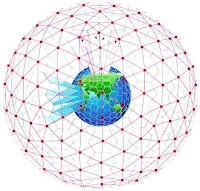

Indeed, in some languages "primes" is a builtin (p:), or a trivial derivation for some domain, and that's the only domain our application is concerned with so is-prime is a (⊣∊primes) - is foolike-ness like that? The motivation for many splitting out a prime-testing function is that primality testing is hard to do efficiently, not that there are many kinds of primes or many kinds of integrals. 12).In many cases speaking of the foolike nature of a value is not dissimilar to speaking to the primeness of an integral: Is a value prime? And now here's is an algorithm for determining whether this value is prime. Three or more Authors: "Cloud based computing requires one to be connected to the Internet" (Denton, Lee, & Chavez, 2013, para. Two Authors: "Cloud storage has a distinct advantage in that your files exist in a place and not on a device" (Rajan & McEvoy, 2012, para. Single Author: "In the simplest terms, cloud computing means storing and accessing data and programs over the Internet instead of your computer's hard drive" (Griffith, 2013, para.

Author After Quotation Without Page Numbers The exceptions to this are if the name 1) begins a sentence or 2) is the first word after a colon when what follows the colon is an independent clause. Thus, if the name starts with a lowercase letter in the source you are citing, as is the case above with the name ‘lyoob,’ keep it lowercase.

With author names, however, your goal is to write the name as the author him- or herself has presented it in scholarly work. As a general rule, APA requires proper nouns to be capitalized. **Note: In the above in-text citation, one of the authors’ last names is not capitalized. Three or More Authors: "Every cloud solution provider has a different set of offerings and a different pricing model" (lyoob, Rossetti, & Chen, 2013, p. Two Authors: "The market for these low-cost machines is being driven by inexpensive bandwidth the growth of services and cloud computing and cloud-based processing, storage, management, and associated IT services” (Fontana & Montalbano, 2008, p. Single Author: "The term 'cloud' comes from the traditional representation of the Internet in network diagrams" (Schwartz, 2013, p. When citing multiple authors after a quotation the ampersand symbol '&' is used instead of the word 'and'. Three or more Authors: Denton, Lee, and Chavez (2013) highlighted, "cloud based computing requires one to be connected to the Internet" (para. Two Authors: Rajan and McEvoy (2012) indicated that "cloud storage has a distinct advantage in that your files exist in a place and not on a device" (para. Single Author: Griffith (2013) stated, "In the simplest terms, cloud computing means storing and accessing data and programs over the Internet instead of your computer's hard drive" (para. Author Before Quotation Without Page NumbersĪuthor (Year) "Quote" (para. Three or more Authors: Lyoob, Rossetti, and Chen (2013) stated, "Every cloud solution provider has a different set of offerings and a different pricing model" (p. Two Authors: Fontana and Montalbano (2008) found that “the market for these low-cost machines is being driven by inexpensive bandwidth the growth of services and cloud computing and cloud-based processing, storage, management and associated IT services” (p. Single Author: Schwartz (2013) noted, "The term 'cloud' comes from the traditional representation of the Internet in network diagrams" (p. Author Before Quotation With Page Numbers If citing an online source without page numbers, cite the paragraph number ( Example: para. 15) and 'pp.' for multiple page numbers ( Example: pp. Use 'p.' for a single page number ( Example: p.

Always include the author's last name, year of publication, and page number(s). Quoted material should be reproduced word-for-word.


 0 kommentar(er)
0 kommentar(er)
